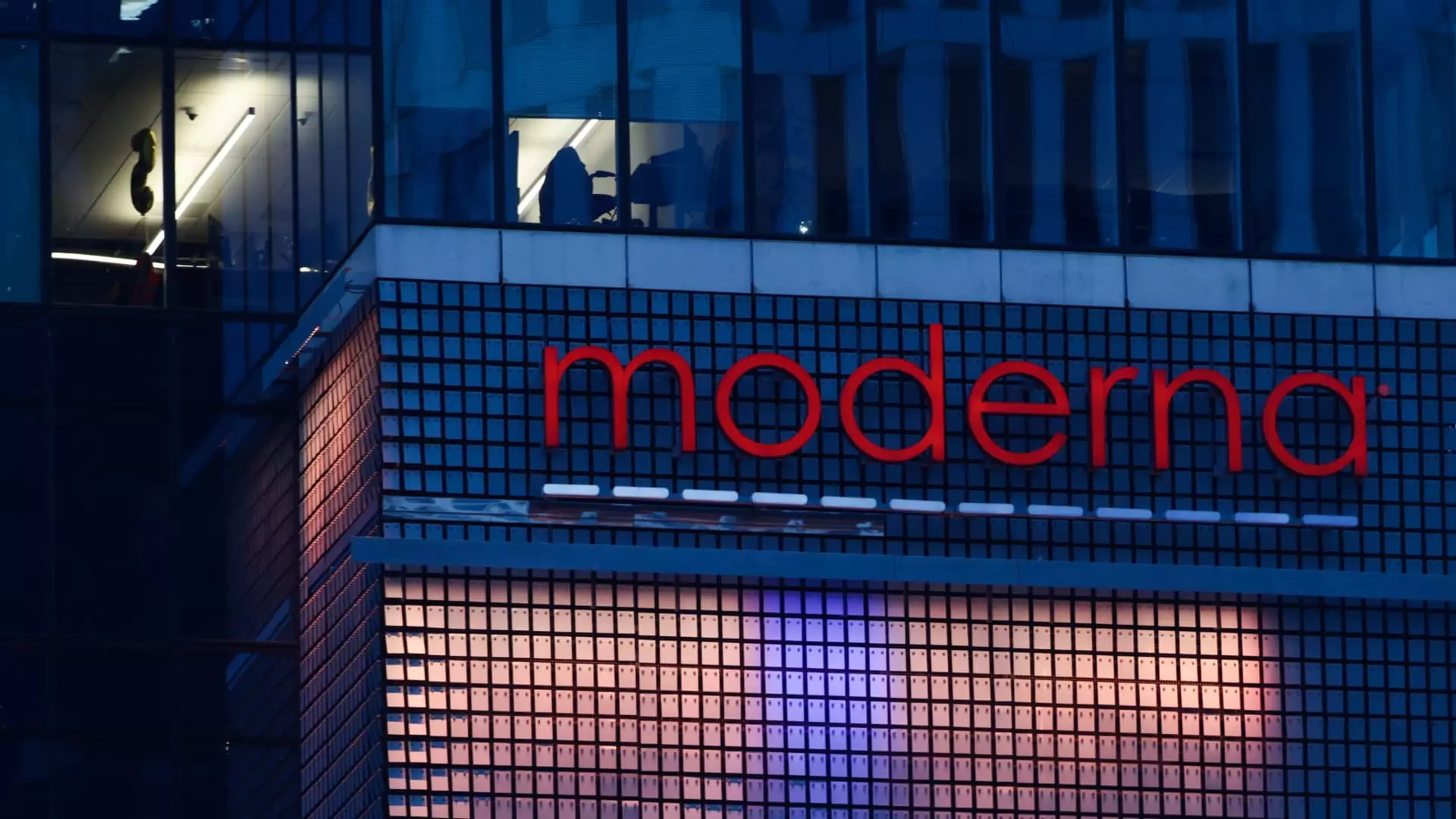Moderna’s recent 2% stock surge after promising results for its experimental flu vaccine might feel like a victory lap for biotech enthusiasts, but a deeper look suggests the road ahead is fraught with uncertainty. While the data heralds potential new standalone and combination shots with Covid vaccines, the industry’s relentless push often masks the costly gamble these companies take to bring innovation to market. The market’s hasty rally overlooks that even successful late-stage trials don’t guarantee commercial success or widespread adoption — particularly when pricing and public skepticism remain substantial obstacles.
Big Tech’s Acquisition Frenzy: A Cautionary Tale
The DOJ’s latest settlement clearing Hewlett Packard Enterprise’s $14 billion Juniper Networks acquisition is portrayed as a straightforward win for the corporations. Yet, this decision risks entrenching monopolistic behaviors that stifle competition in the server market critical to digital infrastructure. The market applauds with double-digit stock gains, but this enthusiasm seems shortsighted: fewer competitors often lead to higher costs and less innovation long term. Regulatory frameworks can’t simply be placated with settlement agreements; they must remain firm guardrails preventing unhealthy market concentration.
Meta’s AI Hiring Spree: Bold or Desperate?
Meta Platforms’ recruitment of four AI researchers from OpenAI to spearhead a new Superintelligence group sounds like a bold gambit to reclaim leadership after recent setbacks. But one can’t help but question whether this is a symptom of desperation cloaked in innovation. The hiring spree reflects Meta’s costly struggle to keep pace in the hyper-competitive AI race, where tech giants pour billions into talent for uncertain returns. Investors’ 2% bump hints at optimism, yet the company’s broader strategic shifts suggest it’s battling to find its footing after years of controversial missteps and regulatory scrutiny.
The GMS-Home Depot Deal: A Double-Edged Sword
GMS’s over 11% stock leap amid Home Depot’s $4.3 billion acquisition announcement signals strong confidence in consolidation within specialty building products. However, this transaction raises alarms about reduced market choices for consumers and smaller players as giant retailers expand their grip on supply chains. While the deal trumps a rival unsolicited offer, the market’s jubilation glosses over potential long-term risks of diminished competition and innovation — a recurring theme in today’s merger-heavy landscape.
Government Contracts and AI Alliances: Palantir and Accenture’s Dance
The modest stock increases for Palantir and Accenture following their partnership reveal an often-overlooked dynamic: the growing influence of AI within government operations. This alliance symbolizes the accelerating privatization of public sector technological advancement that demands scrutiny. When federal contracts drive AI implementation, there’s a risk that profit motives overshadow transparency and ethical considerations. The market’s tepid enthusiasm reflects cautious acknowledgment rather than unbridled excitement.
Disney’s Park Resilience in Uncertain Times
Despite macroeconomic jitters, Disney’s 2% uptick following Jefferies’ upgrade underscores the company’s surprisingly tenacious parks business. Anticipation of cruise revenue surges in 2026 with new ships paints a rosy future, yet this optimism may be premature. Tourism remains vulnerable to economic cycles and shifts in consumer behavior, especially among younger generations less enamored with traditional entertainment models. Disney’s stock move is a reminder that even seemingly stable giants must continuously adapt or risk obsolescence.
Tesla’s Political Headwinds: The Unseen Threat to Renewables
Tesla’s 1% dip, triggered by President Trump’s spending bill advancing with provisions phasing out clean energy tax credits, highlights the precariousness of industry reliance on government incentives. This development starkly exposes how politically charged decisions can swiftly undermine the electric vehicle revolution, despite its environmental urgency. Investors and innovators alike must recognize that technological progress doesn’t occur in isolation: it’s vulnerable to shifting political winds and fiscal priorities that often clash with market optimism. Tesla’s setback is a sobering reminder that combatting climate change requires not only innovation but also stable, forward-looking policies.

